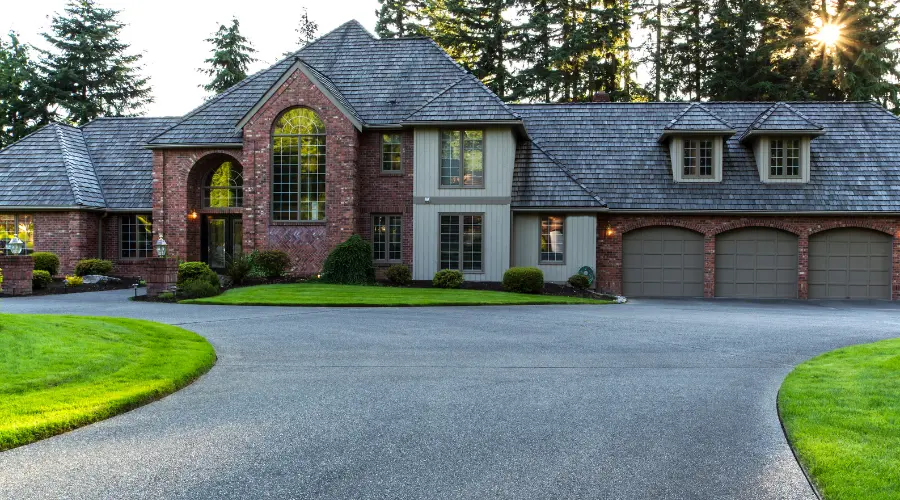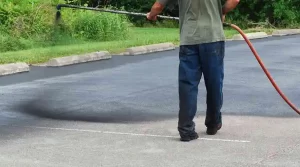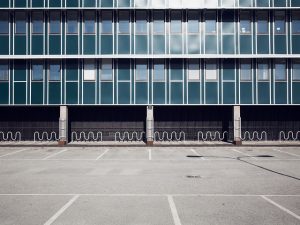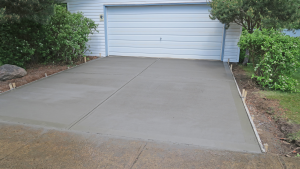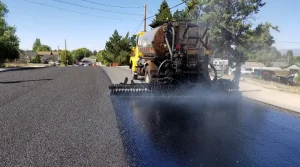Your driveway isn’t just a functional element; it’s a key contributor to your home’s curb appeal and overall value. Choosing the right material and design, coupled with proper installation and maintenance, ensures a durable and visually appealing surface for years to come.
Key Takeaways
- Importance of Material Selection: Concrete, asphalt, and cobblestones each have unique advantages and drawbacks; understanding them is crucial for an informed choice.
- Maintenance Matters: Regular upkeep, including sealing and repairs, is essential to maximize the lifespan of your driveway.
- Expertise Counts: Engaging experienced contractors ensures high-quality results, cost efficiency, and professional solutions for challenges like water drainage.
- Customization Options: From colors to textures, modern driveway materials offer diverse design possibilities to enhance curb appeal.
- Jersey City Paving Commitment: A trusted provider known for quality workmanship, competitive pricing, and customer satisfaction.
Exploring Residential Driveway Materials
1. Asphalt Driveways: The Popular Choice
Asphalt remains a top choice for residential driveways due to its affordability, durability, and ease of installation. It offers a sleek, smooth finish and is resilient against varying weather conditions. Asphalt’s ability to expand and contract makes it particularly well-suited for regions with fluctuating temperatures.
Pros:
- Cost-effective installation.
- Smooth surface ideal for vehicles.
- Resilient against freezing and thawing cycles.
Cons:
- Requires periodic resealing.
- Can soften in extreme heat.
2. Concrete Driveways: Versatile and Durable
Concrete driveways are celebrated for their versatility in design. They can be stamped, stained, or colored to complement your home’s aesthetic. Although initial costs may be higher than asphalt, concrete’s longevity often offsets this expense.
Pros:
- Wide range of design options.
- Long-lasting with proper maintenance.
- Resistant to heat and UV rays.
Cons:
- Prone to cracking in freezing temperatures.
- Higher initial installation costs.
3. Cobblestone and Pavers: Timeless Elegance
Cobblestone driveways exude a timeless charm, making them an excellent choice for homeowners seeking a distinctive look. Pavers are highly durable and offer flexibility in repairs, as individual stones can be replaced without affecting the entire surface.
Pros:
- Unique aesthetic appeal.
- Long lifespan with proper care.
- Easy to repair.
Cons:
- Labor-intensive installation.
- Higher cost compared to other materials.
Maintenance Tips for Long-Lasting Driveways
- Asphalt Driveways:
- Reseal every 3-5 years to protect against cracking and water infiltration.
- Regularly inspect for potholes and repair promptly.
- Concrete Driveways:
- Clean stains promptly to maintain appearance.
- Apply a sealant to prevent moisture penetration and cracking.
- Cobblestone Driveways:
- Remove weeds between stones to preserve aesthetics.
- Address any shifting or loose pavers to avoid uneven surfaces.
Why Choose Professional Installation?
DIY driveway projects might seem cost-effective initially, but the expertise of seasoned contractors brings invaluable benefits:
- Precise Installation: Professionals ensure proper grading and sloping to prevent water pooling and erosion.
- Material Expertise: Skilled contractors help select the best material suited to your climate and aesthetic goals.
- Cost Efficiency: Bulk purchasing and efficient processes reduce overall expenses.
About Jersey City Paving
Jersey City Paving stands out for its dedication to quality and customer satisfaction. We offer complimentary assessments and quotes, utilizing premium materials to deliver exceptional results. Whether you’re installing a new driveway or repairing an existing one, our team ensures flawless execution at competitive prices.
FAQs: Paving Residential Driveways
Q: How do I choose the right material for my driveway?
A: Consider factors like climate, budget, and desired aesthetics. Asphalt is cost-effective and weather-resistant, concrete offers versatile designs, and cobblestone provides timeless charm.
Q: How often should I reseal my driveway?
A: For asphalt, reseal every 3-5 years. Concrete requires periodic sealing to prevent cracks and stains, typically every 2-3 years.
Q: What is the average lifespan of a residential driveway?
A: Asphalt driveways last about 15-20 years, concrete can exceed 25 years, and cobblestone driveways often last over 50 years with proper maintenance.
Q: Can I install a heated driveway?
A: Yes, both asphalt and concrete can incorporate heating systems to prevent snow and ice buildup. This feature is especially beneficial in colder climates.
Q: How do I prevent driveway damage during winter?
A: Keep your driveway clear of snow and ice. Use non-corrosive de-icers and avoid sharp tools that can scratch the surface.
Q: Is it possible to repair only a section of my driveway?
A: Yes, especially with cobblestone or pavers where individual units can be replaced. Asphalt and concrete repairs depend on the extent of damage.
Q: What should I expect during the installation process?
A: The process includes site preparation, grading, material application, and finishing. Professional contractors will ensure efficient and thorough installation.
For unmatched quality and expertise in driveway paving, contact Jersey City Paving at (201) 977-4882. Transform your driveway into a durable and elegant feature of your home today!

